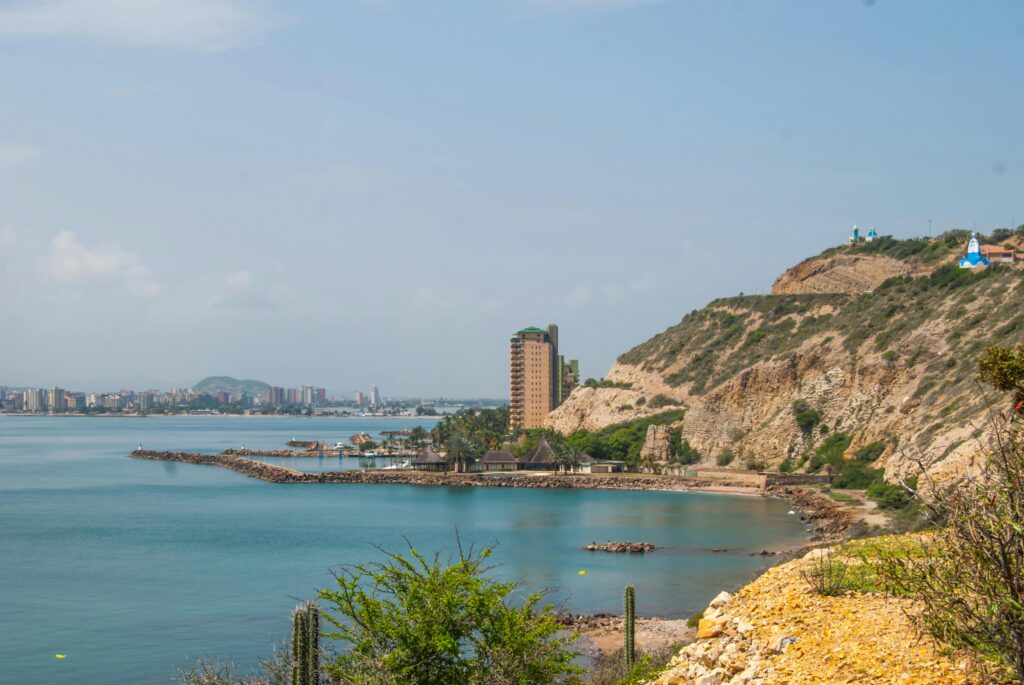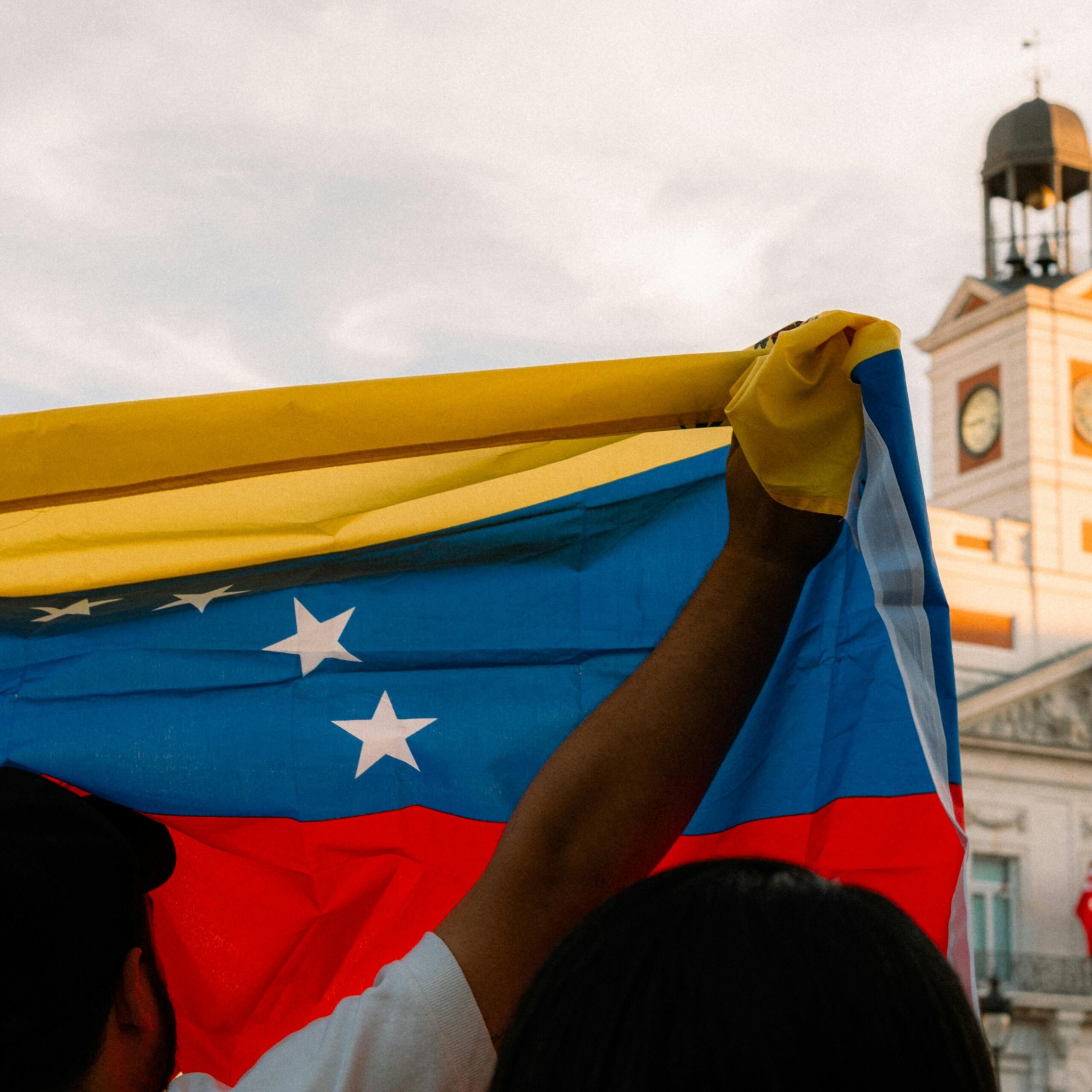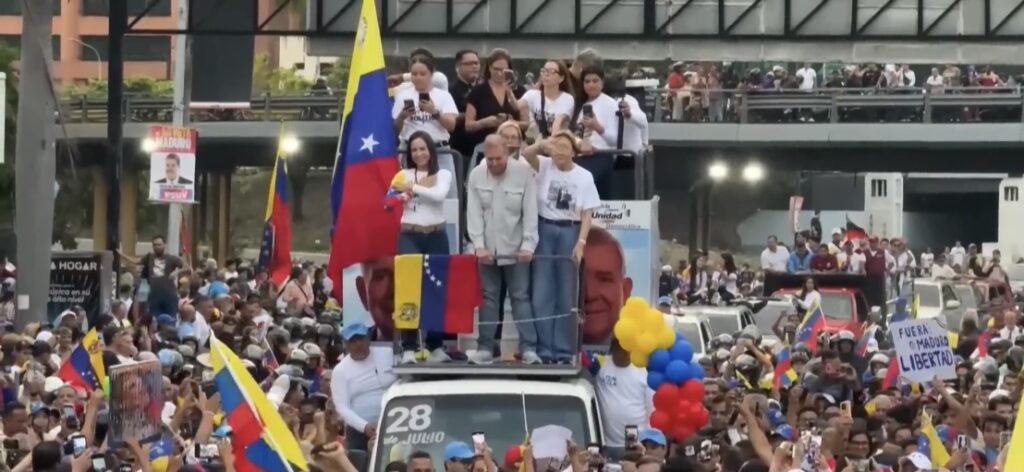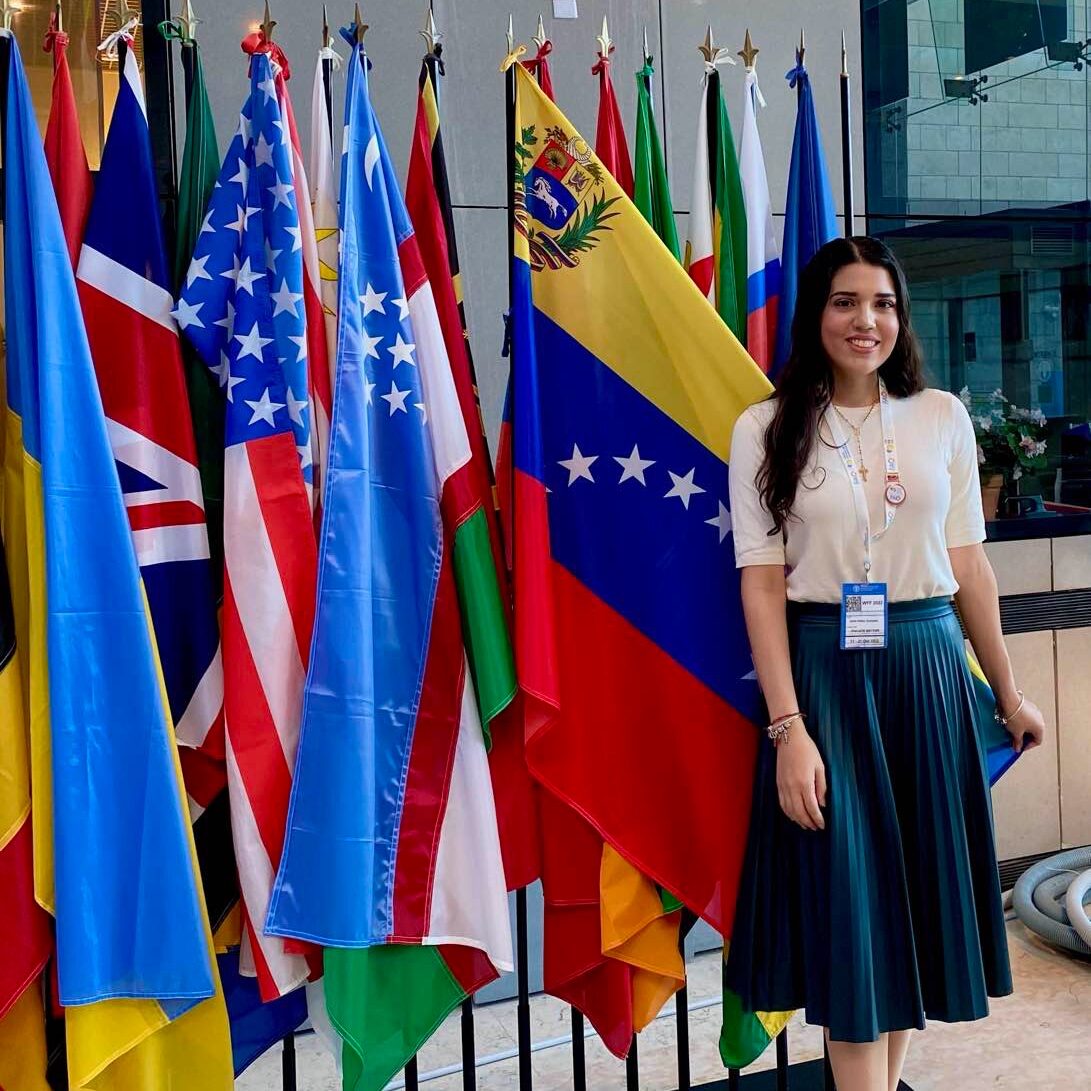Donnatella Bove Parra is an Italian-Venezuelan born and raised in sunny Zulia State. Her background is nothing short of impressive as a former Deputy Assistant to the Venezuelan Ambassador of Canada and current Technical Adviser on the situation in Venezuela. Donnatella’s most impressive trait is her passion, dedication, and love for her country. In this raw and emotional interview, she shares the sources and stories of her lifelong inspiration to serve her country in the spirit of former President Kennedy’s words to “Ask not what your country can do for you, ask what you can do for your country.”
Where were you born and raised?
I was born in Maracaibo, Zulia State, in Venezuela. It’s known as La Tierra del Sol Amada, a beautiful place. It is always sunny and warm, and I truly miss it every single day. I lived in Cabimas, which is located in La Costa Oriental del Lago just about one hour away from Maracaibo, where most of my family lived. I was raised in Venezuela until I was 16 years old.

When did you come to Italy?
My family and I came to Italy in 2019. We had to flee Venezuela in April during the national blackout that started in late March of that year. The entire country entered a period of literal darkness. It was a very difficult time. We left the country originally for 15 days, or at least that is what we packed for. We closed our home thinking that we would return, but that didn’t happen. What began as 2 weeks became a month, and then a month turned into 3 months, so we decided to stay in Italy.
Returning to growing up in Venezuela, how did your environment shape your early years?
If I look back on the feeling or perception I had of Venezuela during my childhood, I would say it was primarily about warmth and a sense of belonging. I have always loved Venezuela; for me, it is the most beautiful country in the world. I grew up surrounded by friends and family, by warmth; surrounded by beautiful, dreamlike, breathtaking landscapes. I grew up knowing that Venezuela is Paradise on Earth: from its history, its location, its traditions and culture, its landscapes, its climate, even its music—and from there comes the essence of our nationality, that essence that simply makes us who we are. It is impossible not to feel proud of being Venezuelan. But also, I grew up hearing from my relatives the memories of a country that no longer exists—which made me realize, at a young age, that something in the present was not right. For this reason, I developed an instinct that prompted me to learn more about my country and the world, mainly because it became increasingly evident that at school we only focused on carefully constructed narratives on national matters.

One day, my mom gave me two incredible books, that belonged to her when she was studying law, which helped me visualize our past: the biography of Rómulo Betancourt and the book “Memorias Proscritas” about Carlos Andrés Pérez, two presidents of Venezuela during the democratic era. As I turned each page, and learned about Venezuelan history pre-1999, it was truly like taking a blindfold off your sight. The more I read, the more I could see.
As a result of my curiosity, and thanks to books and the access to the internet, one day, when I was about 10 years old, I read President Kennedy’s inaugural address and, at that moment, I felt my heart turn into a torch of freedom. To this day, I have that speech memorized. I feel like what impressed me the most, even in my innocence as a child, was the part where he says, “In the long history of the world, only a few generations have been granted the role of defending freedom in its hour of maximum danger. I do not shrink from that responsibility, I welcome it. The energy, faith, and devotion that we bring to this endeavor will light our country and all who serve it, and the glow from that fire is the one that can truly light the world” – and that’s when he says, “Ask not what your country can do for you, ask what you can do for your country.” I immediately connected with this. Our national anthem, Gloria al Bravo Pueblo (“Glory to the Brave People”), is a call to freedom; not only in my surroundings, but even in the history I studied in school, we always encountered that word, and despite the censorship, between the lines it was possible to grasp that innate sense of courage and freedom of the Venezuelan people, whether the regime wanted it or not.
In retrospect, I can say that I was developing a critical mind that allowed me to question the regime’s narrative – and even catch the lies. For example, in our school books we were taught that a country was democratic only if it held elections, thereby avoiding mentioning key characteristics, such as human rights and freedoms, rule of law, and the separation of powers from the Executive. But the factor that made me realize I was living under a dictatorship was discovering that presidential terms do have limits – since 1999 there had been only one alleged “President” – so from that moment on, I only refer to Chávez as Dictator. At a young age, even before I understood my place in the world, I felt like my freedom had been taken away from me. After that, I started to ask more questions, and of course, at school, my questions were never answered because it wasn’t safe for the professors to do so. As the years went by, I internalized a particular perception, one that results from having been born in 2002, when the dictatorship led by Hugo Chávez had already been consolidated: younger generations, like mine, were robbed of our youth and dreams of a future in our country. Sometimes I think about the ‘what if’ or the ‘could have been’ if that Bolivarian Revolution had been stopped. Perhaps, I could have chosen to study at university in Caracas and pursue a degree in International Affairs or Political Science, or maybe follow in my mom’s footsteps by going to law school at Universidad del Zulia–things that seem normal to many, to me feel like a distant dream. We were robbed of the opportunity to decide for ourselves to stay and grow old in our country – and that thought, that pain, that grief has stayed with me ever since, prompting me to ask what I can do.
Did you always know you wanted to go into International Affairs?
Yes, I always knew I wanted to study international affairs, for two reasons: First, I thought it was the only way to stand up to a regime that not only took away all of your humanity and the lives of those around you, but also stole the history and culture of your country. When I started studying my degree at John Cabot, I was free to seek answers for the first time in my life. I studied a B.A. in International Affairs and in Economics and Finance with a minor in Legal Studies. My principal aim those 4 years was to discover the true history of Venezuela – the history the regime desperately hid from the youth – and study how to recover and rebuild our country.
I understood that rhetoric and ideology were the dangerous tactics used by Chávez as a means to an end. The end being power. Chávez made people believe that only his movement would bring “progress” and that our past needed to be erased. He came to the presidency in 1999 through democracy, its institutions, and the freedom of the people to elect and vote for their future at that time. Mistakenly, the people gave the presidency to a man who opposed the foundations of democracy and his own nation.
Once the end was achieved, there was no need to keep lying. Power had come into Chávez’s hands to enrich himself at the expense of the people he had sworn to protect; and at the expense of the equality, he had sworn to bring. In the blink of an eye, the people realized they had made a mistake, but there was no turning back, Chávez had already dismantled democracy by changing the Constitution and securing power in all the spheres of government because there is nothing that a dictator fears more than freedom (and contested elections), for in the end it’s the people who decide who governs them.
The truth is that in 1999 Hugo Chávez and his Bolivarian Revolution stole our nation’s prosperous future and turned it into economic and political ruin, and whose corruption led an entire population to ruin and poverty, to die of hunger or for lack of medicines. Chávez stole our nation, our capital, our land, and our history. Chávez laid the foundations of a state of terror, that to this day, instills fear in anyone who tries to think, speak, or act to defend their innate rights and freedoms; and empowered police, military, counterintelligence bodies and paramilitary groups to persecute, harass, kidnap, murder and disappear, innocent civilians, including children and adolescents. After 26 years, now with Nicolás Maduro as dictator, Venezuela has had the most severe non-war-ridden catastrophe in recent times: a political, economic, social, and humanitarian crisis that has caused the largest migratory exodus in history – both of the Americas and the World.

After decades of stolen elections, and despite the regime’s attempts to subvert the electoral process through persecution, intimidation, and harassment of the civilian population, we Venezuelans bravely demonstrated to the world our desire for democracy and unequivocal call for freedom on July 28, 2024 by voting for change. Our President is Edmundo González Urrutia, and the leader of the opposition is María Corina Machado. Second, I have always wanted to give back to our people, for I have seen and experienced first-hand what it is like to be invisible to the eyes of the world. As I mentioned before, Venezuela is warmth and a sense of belonging, but that is a result of the unique essence of Venezuelans, who make you feel at home and welcomed. Even on the hardest days of our lives, we share a smile and refuse to give up, for we carry courage in our blood y tenemos el alma primorosa del cristal. We never lose our hope, as Faith is at the center of our lives by hearing the words “Dios te Bendiga,” meaning “God bless you.”
Those who are still living in the country are heroes and so resilient, as they continue to survive in harsh conditions; and those who have migrated are strong and courageous heroes too, as they made the difficult decision to leave everything they once knew behind in exchange for an unknown future. All Venezuelans have broken hearts, in one way or another and wherever we are. There are more than 7.8 million migrants and refugees worldwide, and that number continues to grow every day the Maduro regime remains in power.

I have offered my life to the service of my country and my people. As a Venezuelan, I feel it’s my responsibility. Though I’m still in the process of learning and studying, I’m devoted to providing my skills and abilities to the service of our Venezuela, and for that purpose, I do my best every single day. The journey that I have been on is for a bigger purpose, it’s the same instinct I had as a child – now it all makes sense. God gave me a calling, a gift. I believe that it has been God’s will to present me with opportunities at the right moment at the exact time that I needed. Everything I have been through and have seen has helped me become who I am today. Venezuela and my fellow Venezuelans are the greatest responsibility that I have. The day we regain our freedom, we will return home to rebuild our country – and we will welcome all who want to see what we have become.
What is your future vision for Venezuela?
I envision a country where people dare to dream. I envision a country where children can go to school and enjoy their childhood and innocence; where people do not have to flee to work out of necessity because there is progress. For me, that is the most important thing. Most Venezuelans have stolen dreams, and you can even call them stolen lives, and as the years go by it’s simple to realize this is not how we were supposed to be living. I think there are many types of grief and we have had to go through the pain of leaving our roots, our families, our culture, our homes, our sense of belonging, and many other things… there is no comparable pain.
Although we have been going through very difficult times, I feel that Venezuelans are excited to feel at our fingertips the hope of returning to rebuild our country. Every single one of us is going to put a little grain of salt into rebuilding that beautiful country to what it was supposed to be. I want people to recover and feel peace with what they have lost to be able to think about the future and be present. I want Venezuelans to be able to say: “I am here today and ready to rebuild and turn this country into what it should have been and even better because we’re united.” I truly dream about the day I get to experience all of our essence again – the day that I get to come back and breathe my own air, feel my own sun, and put all of my knowledge into practice.
Connect with Donnatella on LinkedIn
More Uprooting Passion Interviews
Follow Honestus on Instagram
